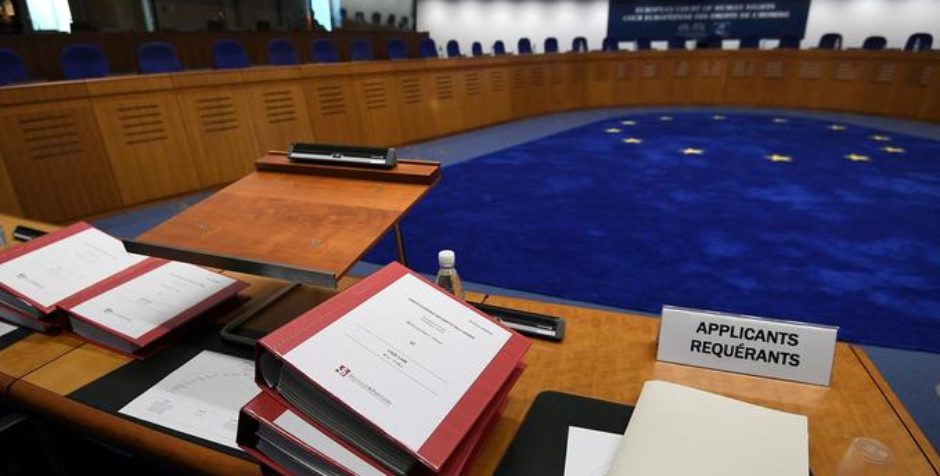In June 2023, the European Court of Human Rights (ECHR) decided to add a new provision to its Rules on the waiver of judges' immunity. It also clarified the rules governing the dismissal of judges.
Following the publication of the ECLJ reports on "NGOs and ECHR Judges" and on "The impartiality of the ECHR," the European Court has already revised and improved its rules, implementing several of the ECLJ's recommendations. Thus, in March 2023, it published a "Practical Instruction" specifying the purposes, terms and conditions of third-party interventions. Similarly, in 2021, the Court amended its resolution on judicial ethics.
This latest amendment to the Rules comes after the ECLJ presented in its latest report a case that went largely unnoticed, but raised the difficult question of how to lift the immunity enjoyed by ECHR judges and their relatives.
Judges' immunity was originally governed by the Sixth Protocol to the General Agreement on Privileges and Immunities of the Council of Europe. It covers judges, their spouses and minor children. The new text adopted by the Court now specifies that the decision to waive immunity must be taken by an absolute majority of the elected judges in office, with the exception of the judge whose immunity is to be waived. In accordance with the requirements of a fair trial, the judge concerned must have access to the documents relating to the opening of the procedure for the waiver of his immunity and must be heard by the plenary Court. On the other hand, the judge in question shall not have access to the documents relating to the continuation of the proceedings before the Plenary Court, and shall not attend the deliberations or take part in the vote in the proceedings for the waiver of his immunity, probably in order to avoid any pressure from colleagues.
This welcome addition to the Court's Rules completes the procedure laid down in the General Agreement on Privileges and Immunities of the Council of Europe. It comes in the context of a case involving the husband of former Ukrainian judge Ganna Yudkivska, who sat on the ECHR between 2010 and 2022. Her husband, Georgii Logvynskyi, a member of the Ukrainian "People's Front" party, was subsequently elected as a member of parliament in 2014, and between 2015 and 2019 sat on the Parliamentary Assembly of the Council of Europe (PACE), where he was given significant responsibilities.[1]
In 2020, Mr. Logvynskyi was investigated by the National Anti-Corruption Bureau of Ukraine (NABU). He is accused of having participated in the embezzlement of 54 million Hryvnia (€1,836,735) through the Golden Mandarin company and by means of proceedings before the ECHR. More specifically, he is accused of having abused an ECHR procedure[2] to conclude a friendly settlement[3] obliging the Ukrainian government to pay this sum.[4] The Ukrainian government's agent in Strasbourg was also prosecuted for corruption.
In 2020, NABU asked the ECHR to lift the immunity enjoyed by the MP as the husband of Mrs. Yudkivska,[5] in order to continue the investigation. Judge Yudkivska objected, and the ECHR rejected the request on the grounds that the investigation initiated in Ukraine against Mr. Logvynskyi had already violated his immunity.[6] The request for waiver of immunity was therefore rejected without examining the merits of the charges brought at national level.[7]
There is a precedent: in 2011, the Court agreed to waive the diplomatic immunity of the wife of Romanian judge Corneliu Bîrsan, in the context of a corruption investigation, even though "the search [...] of Mr. and Mrs. Bîrsan's home in Romania violated Judge Bîrsan's immunity in respect of both himself and his wife."[8] Judge Bîrsan then withdrew from all cases involving Romania for the duration of the investigation, which Mrs. Yudkivska did not do.[9] All proceedings against Mrs. Bîrsan were eventually dropped.
To date, Mr. Logvynskyi is believed to be abroad and wanted by Ukraine's National Anti-Corruption Bureau.[10]
The defendants in these proceedings lodged applications with the ECHR in April 2021[11] against the NABU investigation. Mr. Logvynskyi argues before the ECHR that there was no factual or legal basis for taking the investigative measures against him, in particular the eavesdropping on his conversations and the reading of his electronic communications, and the searches of lawyers' offices. He also maintains that these measures were contrary to the protection he should enjoy as a lawyer, member of Parliament and spouse of a sitting judge of the Court. In addition, he alleges that NABU forced another lawyer to secretly record his conversations with him. He further claims that these investigative measures sought to harass him and damage his reputation, while at the same time giving NABU a positive public image.
The ECHR is expected to rule shortly on the merits of this delicate case. Whatever the outcome, the facts of this case teach us that it is preferable to avoid appointing to the Court people who are close to politically committed and exposed figures.
In 2022, at the end of her term of office in Strasbourg, Ms. Yudkivska was elected to the United Nations Working Group on Arbitrary Detention , and as such enjoys a new immunity.
____________
[1] https://pace.coe.int/fr/members/7353/logvynskyi
[2] Six persons are suspected of UAH 54 million funds embezzlement | National Anti-Corruption Bureau of Ukraine (nabu.gov.ua)
[3] ZOLOTYY MANDARYN OYL, TOV against Ukraine:https://hudoc.echr.coe.int/eng?i=001-158778
[4] The New Trial: Kafkaesque Punishment for Cooperation with the ECtHR - Strasbourg Observers
[5] UAH 54 million funds embezzlement: NABU statement regarding the ECHR decision | National Anti-Corruption Bureau of Ukraine
[6]HUDOC - European Court of Human Rights (coe.int)
[7] Decision of the European Court of Human Rights: https://hudoc.echr.coe.int/eng-press?i=003-6744372-8997689
[8] Decision of the European Court of Human Rights: HUDOC - European Court of Human Rights (coe.int)
[9] Isayev v. Azerbaijan and Ukraine, no. 4832/20, July 30, 2020.
[10] https://lb-ua.translate.goog/society/2023/08/02/568210_nabu_ogolosilo_rozshuk_eksnardepa.html?_x_tr_sl=auto&_x_tr_tl=fr&_x_tr_hl=fr&_x_tr_pto=wapp
[11] Logvynskyy v. Ukraine and 2 other applications, no. 32671/20.














